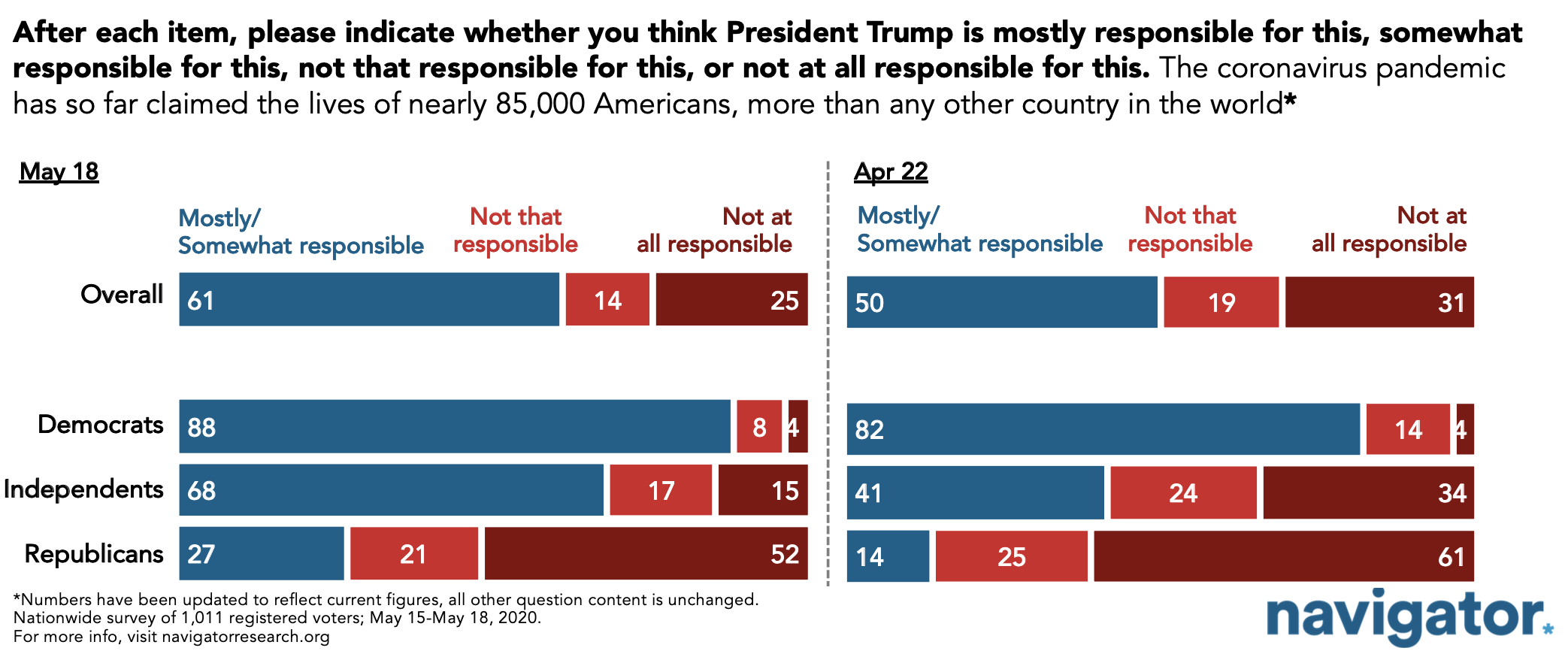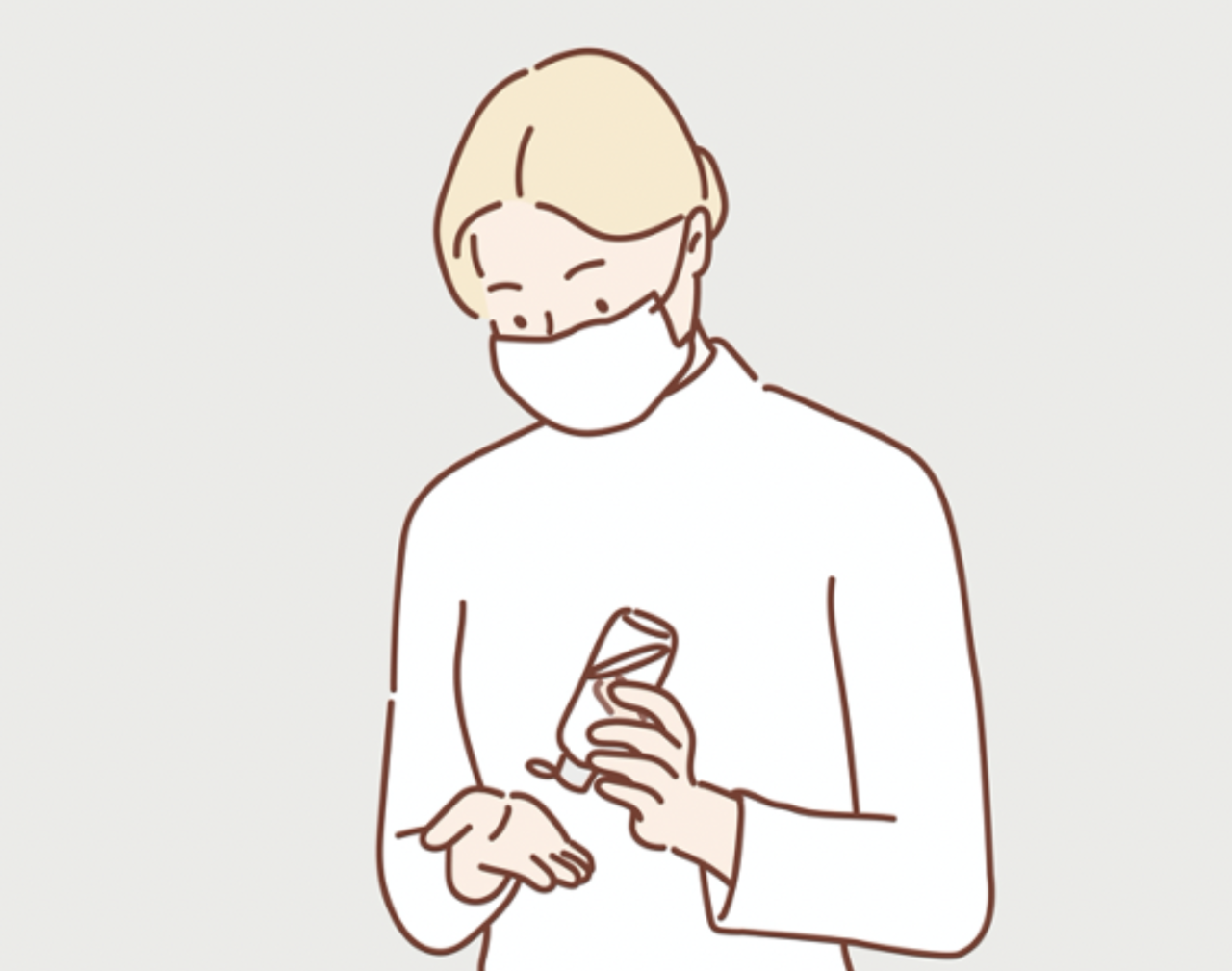Welcome to NAVIGATOR – a project designed to better understand the American public’s views on issues of the day and help advocates, elected officials, and other interested parties understand the language, imagery, and messaging needed to make and win key policy arguments.
This release features findings from a national online survey of 1,011 registered voters conducted May 15-May 18, 2020.
Key takeaways
- Barack Obama is significantly more popular than Donald Trump, and the public places far more blame on the Trump administration for America’s failure to prepare for coronavirus than on the Obama administration.
- Democrats in Congress maintain an advantage over Trump on trust to handle a number of issues related to the coronavirus pandemic.
- The public remains concerned that Trump is blaming others, downplaying the threat, and ignoring experts amidst the crisis.
Obama Far More Popular Than Trump
Despite Trump’s recent attacks on Obama, including peddling false accusations about pandemic preparedness and other conspiracies, nearly two-thirds of Americans are favorable toward Obama.
- A quarter of Republicans (25%) are favorable to Obama, while only 9% of Democrats are favorable towards Trump. Far more independents have a favorable rating of Obama (59%) than Trump (37%).
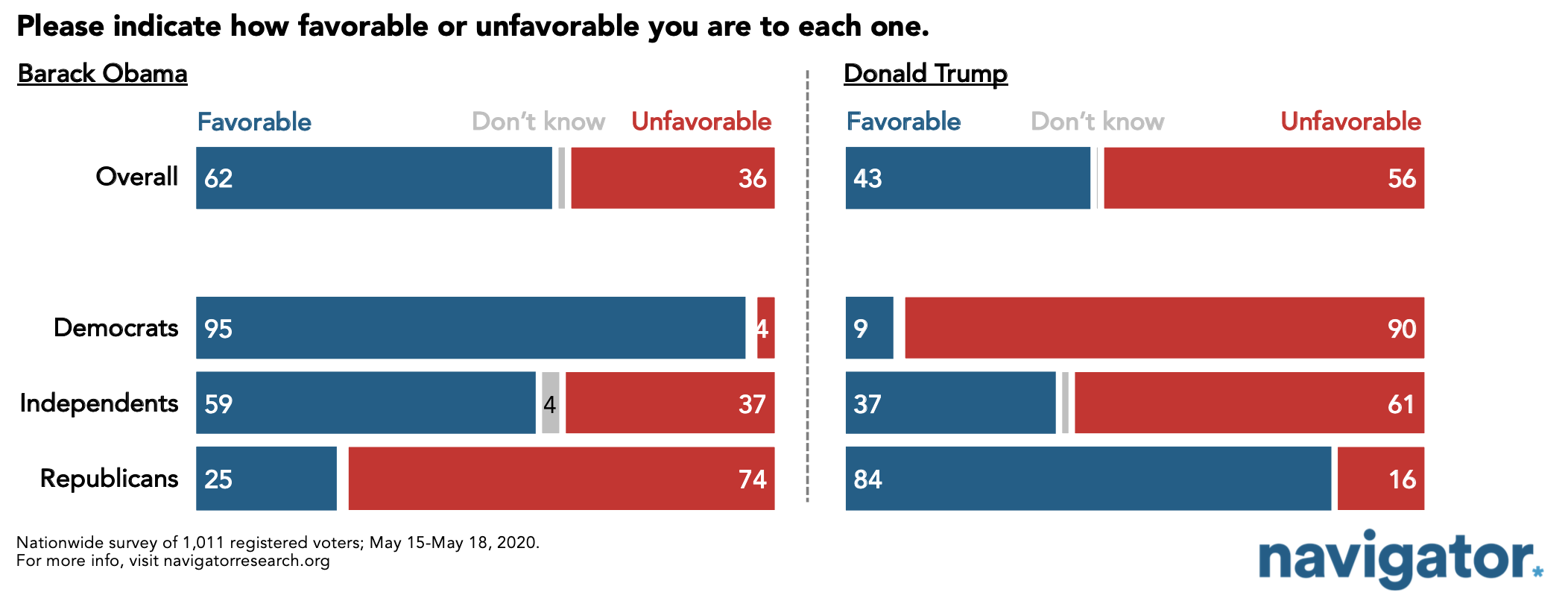
Trump’s Obama Attacks Aren’t Working
Very few Americans blame the Obama administration for pandemic unpreparedness, while a majority blames Trump, and by a 17-point margin, Americans agree that Trump is politicizing the Department of Justice to benefit his allies.
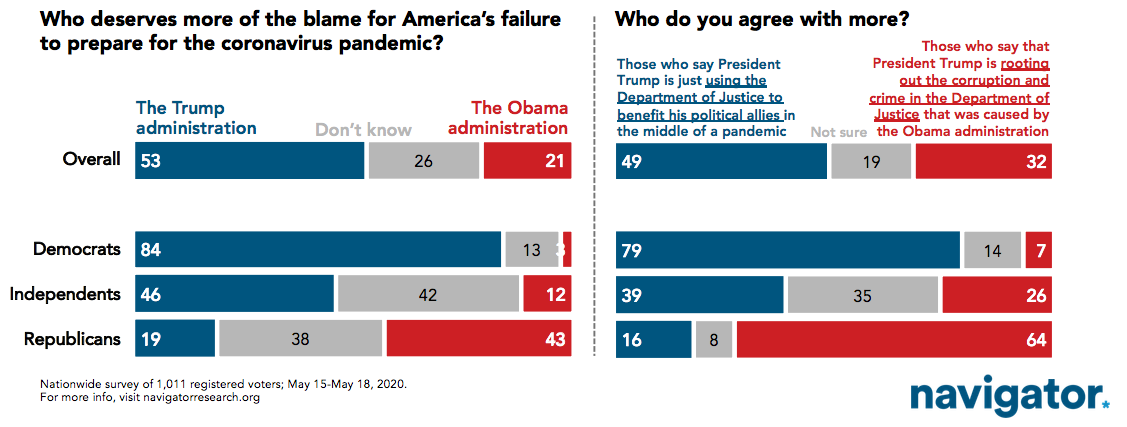
Majority Continue to Call Trump’s Response a Failure
A majority of Americans say that Trump’s response to the pandemic has been a failure.
- A third say Trump’s response has been a “big failure,” while just 9% say of the public overall, including only 18% of Republicans, say it has been a “big success.”
Public Feels American Response Worse Than Other Countries; Trump Making Things Worse
More than half of Americans feel the U.S. response to coronavirus is worse than in other countries and that Trump made mistakes in his handling of the outbreak that made things worse than they should have been.
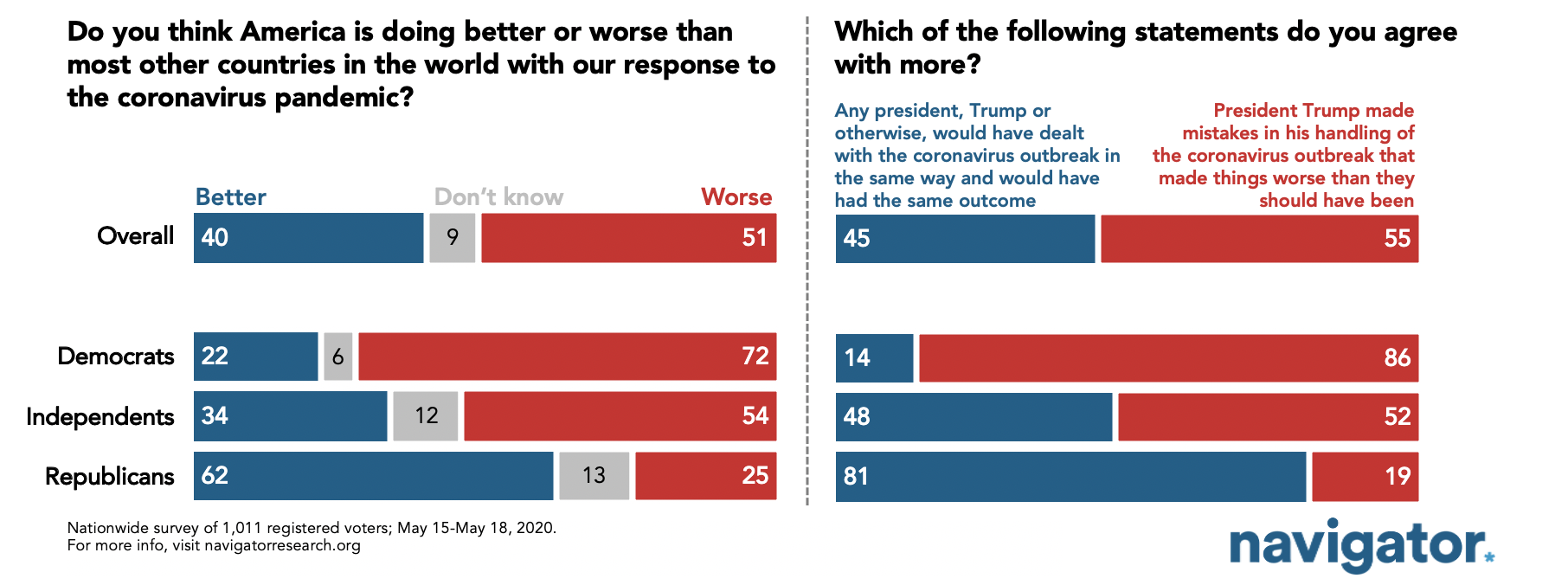
Majority Continue to Say Trump Not Doing Enough
Majorities believe Trump did not take it seriously at first and that he is not doing enough now.
- More than a third of Republicans (35%) say that he did not take it seriously enough at the beginning.
- Among independents, more than half (53%) believe that Trump is currently not doing enough, and two in three (66%) say that he did not take it seriously enough early on.
Democrats Hold Advantage on All Aspects of Pandemic
Democrats hold a lead over Trump in trust to handle a range of metrics related to the pandemic, varying from health care coverage, to responding to the economic impact, to making decisions about reopening the country.
- Since March 23, the Democratic advantage on response to the pandemic has grown 15 points (-6 to +9).
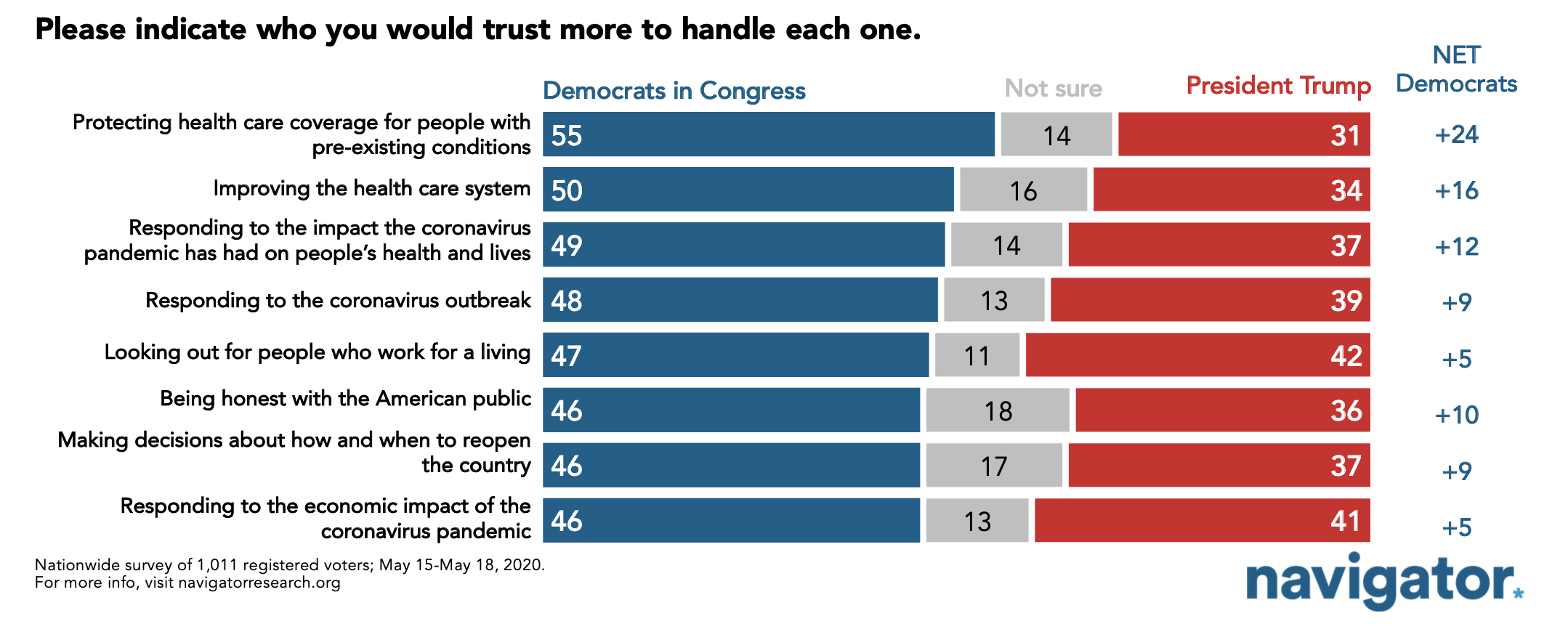
Top Concerns: Blaming Others, Downplaying, Ignoring Experts
When presented with a series of criticisms about Trump’s handling of the coronavirus pandemic, respondents rate blaming others, early downplaying, and ignoring experts as actions that raise the most serious concerns.
- “Very” serious concern about Trump blaming others grew 8 points from March 23 (40% to 48%).
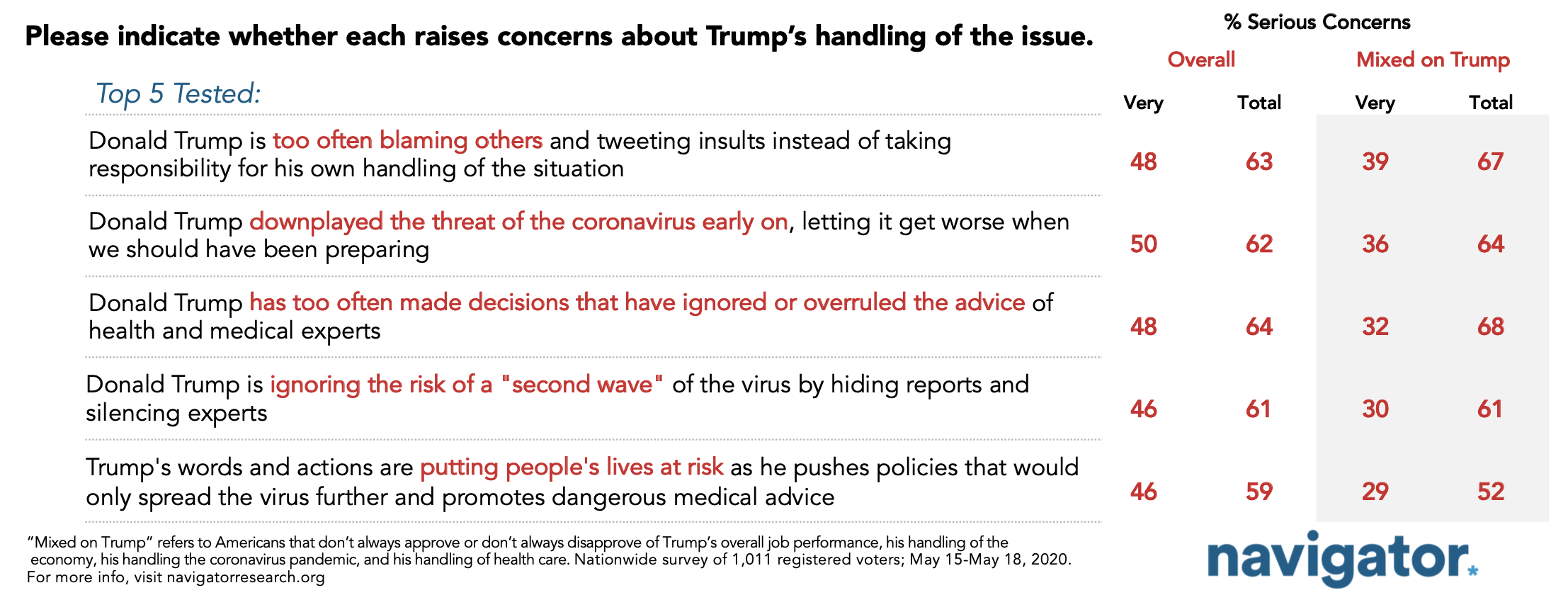
Americans Most Concerned Trump is Unprepared
Two-thirds of Americans categorize Trump’s response to coronavirus as “unprepared,” and over half find it to be the most concerning aspect of his response to the pandemic.
- Among those mixed on Trump*, 72% say ”unprepared” applies to him, while 65% say it’s most concerning.
Public Holds Trump Increasingly Responsible for Lack of Testing, Unemployment, Lives Lost
Nearly two in three Americans find Trump responsible for limitations on testing, high unemployment, and loss of life.
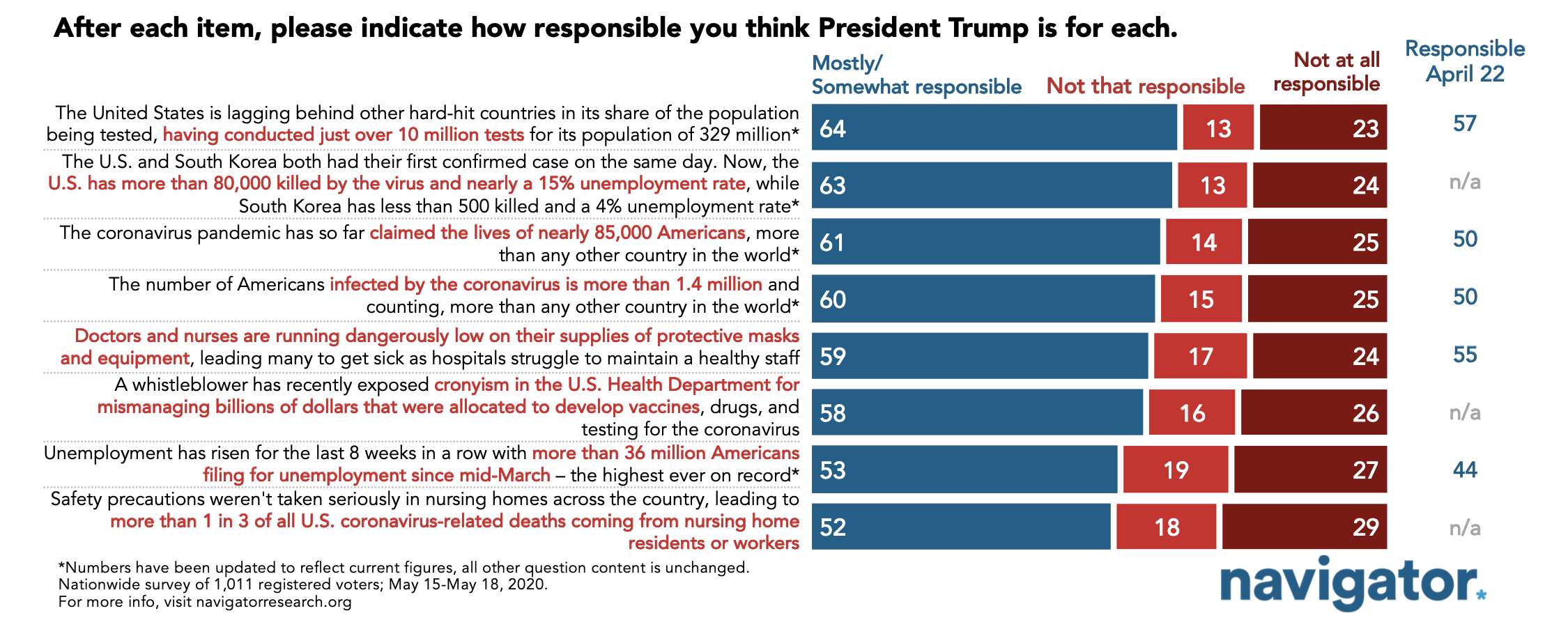
Larger Share Say Trump Responsible for Death Toll
The share of Americans who find Trump mostly or somewhat responsible for America having the highest number of casualties from coronavirus has grown by 11 points since April 22.
- Among Republicans, the percentage who say this has grown by 13 points since April 22 (from 14% to 27%).
